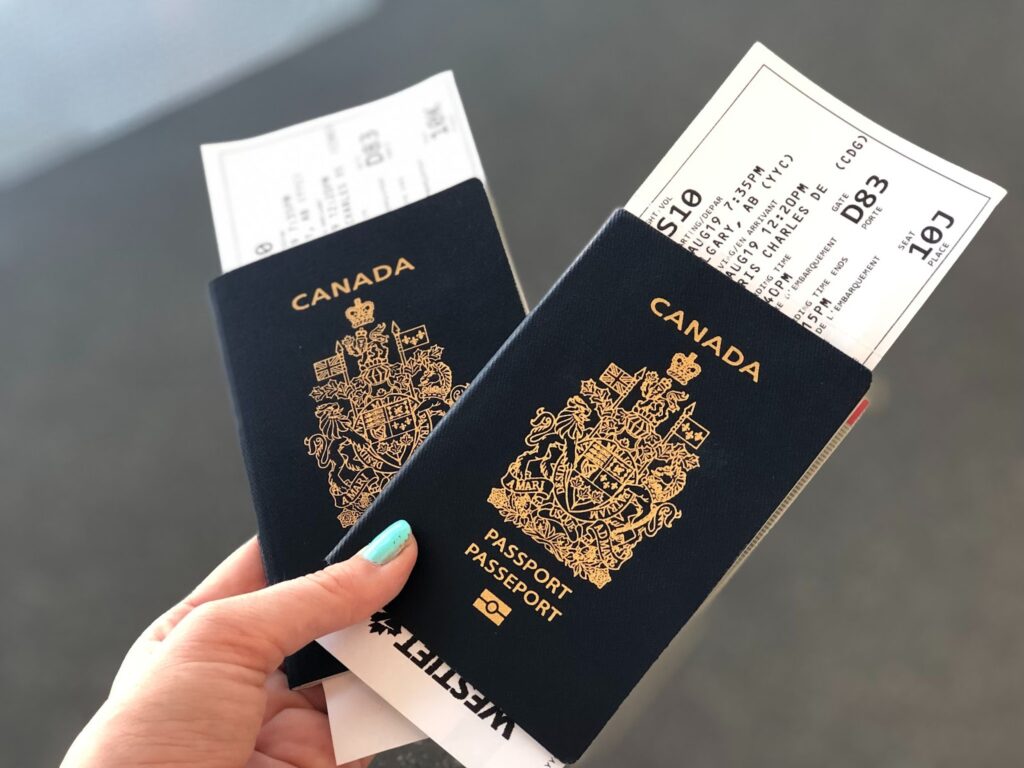Are you considering relocating to Canada from the United States? If you are a US citizen or permanent resident, you don’t have to go far to get a new start with better opportunities. Your northern neighbor will welcome more than 1.2 million immigrants by 2023 to live and work in a country that prioritizes diversity, equality, and people.
More and more people are moving to Canada from the United States, and in this guide, we look at the benefits of working and living in Canada versus the United States and how you can make a move north permanent.
So, where do I begin?
First and foremost, you should have an idea of how long you intend to stay in Canada — less than six months? More? On a contract basis? Amen? Forever and ever? Will you be there for work, school, or a wedding? If full Canadian citizenship is your goal, you must first become a permanent resident.
How much does it cost to move from the United States to Canada?
Cost of moving to Canada is typically between $1,625 and $7,000. Your current location and intended destination largely determine the cost of an international move from the United States to Canada, the number of belongings, special items, packing and unpacking, and other factors.
What is the total number of provinces in Canada?
Canada is divided into three territories and ten provinces. Based on your intended method of entry, you may already know where you want to live or have no idea at all. Your first decision should be whether or not you want to live in “French Canada.” Do you understand French? Are you willing to learn to speak French? If you can’t respond with an enthusiastic “oui,” you should probably live in non-French Canada. Quebec is excellent, but Canada is a massive country with other English-speaking cities.

So, what are the requirements for relocating to Canada? Is it necessary for me to have a job first?
Not necessarily, but it will undoubtedly make life easier. It increases your chances of receiving Express Entry and allows you to apply to a Provincial Nominee Program if that’s what you’re looking for. So what does any of this mean? I’m glad you asked.
- Express Entry: The quickest way to move to Canada (if you qualify)
If you have more than a year of full-time work experience in Canada, you are likely eligible for Express Entry. The application is entirely online, and it is typically processed within six months, though, as with everything in the COVID age, things may move more slowly. Other methods of immigration are almost always going to take longer than this one, so if you qualify for Express Entry, this is undoubtedly the best option. The entire procedure will cost between $1,500 and $2,000 in total. Express Entry is available to skill foreign applicants, typically younger, who have passed one of the official language exams in either English or French:
- IELTS, which stands for International English Language Testing System (IELTS)
- French Certification Exam, also known as the Test d’Evaluation de Français (TEF) and
- The Canadian English Language Proficiency Index Program (CELPIP)
When you apply, you will be graded on a scale of 1 to 1,200 points. The first 600 are determined by your education, skills, and work experience, as well as whether you have a spouse in Canada. The remaining 600 come from factors such as having Canadian degrees/diplomas/certificates (always a plus), job offers, a nomination from a Canadian province (more on that later), siblings with permanent Canadian residency, and proficiency in French.
- Another Option? The Provincial Nominees Program (PNP)
This is a less common path, but you can apply for a PNP to show that you have the necessary education and work experience. Certain provinces may be looking to expedite specific “streams” of immigrants to fill specific needs, such as students or skilled workers in areas of expertise where there is a shortage in the province. So, if you have a full-time job offer in, say, technology, you may be able to get a nomination from British Columbia, which is looking to expand that sector. Then, assuming you are eligible, contact the province’s government you hope to be nominated.

- Apply to Study in Canada after moving from the United States.
The study path to settlement in Canada can be summarized in three words:
Learn, Earn, and Stay.
Every year, approximately 15,000 US citizens study in Canada. Immigration, Refugees and Citizenship Canada (IRCC) has authorized over 1,500 universities, colleges, and other educational institutions to admit international students. As a result, international students can work while studying in Canada, supplementing their income and gaining work experience. In addition, graduates of eligible Canadian institutions can apply for a Post-Graduation Work Permit, an open work permit (PGWP). The PGWP allows recent graduates to gain valuable Canadian work experience, which may qualify them for permanent residence and increase their chances of obtaining immigration status.
- Self-employed? There’s something for you too!
If you want to be self-employed in the next chapter of your life, you’ll need to show that you have at least two years of relevant experience in the field in which you want to work. That experience should also be relatively recent, from within the five years preceding the date you first apply and classified as either cultural activity or athletics, such as freelance journalists, sports stars, or musicians. In addition, you’ll need to get a police certificate and have a medical exam performed by a Canada-approved physician.
- Consider Green-Cards Marriages!
You most likely don’t need us to tell you that if you already have family in Canada, they can sponsor your immigration to the country, but they can.
Spouse sponsorship is included in family sponsorship! If you marry a Canadian citizen or permanent Canadian resident over 18, they may sponsor you as a permanent resident. Of course, you’d have to demonstrate that you’re deeply in love and aren’t just using a marriage certificate as a piece of paper to get into the country, which people do all the time successfully.
- Immigration Process in Quebec
The procedure in Québec is slightly different. In terms of self-employment and PNPs, Québec can choose its immigrant applicants, independent of the Canadian federal government. Québec, rather than having a PNP, has a separate process of skilled worker selection. You apply directly to the provincial government for a certificate of selection or Certificat de sélection du Québec. You’ll also need a police certificate and a medical exam performed by a Québec-approved physician (which you can find through the same link as the one under the “self-employed” section). After your application to Québec has been approved, you can apply to Immigration, Refugees, and Citizenship Canada (IRCC) for permanent resident status.
Conclusion
Bear in mind that these programs are competitive and based on a score. Remember that simply meeting the eligibility requirements for any of these programs is insufficient. Candidates are given a score and ranked against other candidates; only the top-scoring candidates can apply for immigration to Canada. Good luck!




